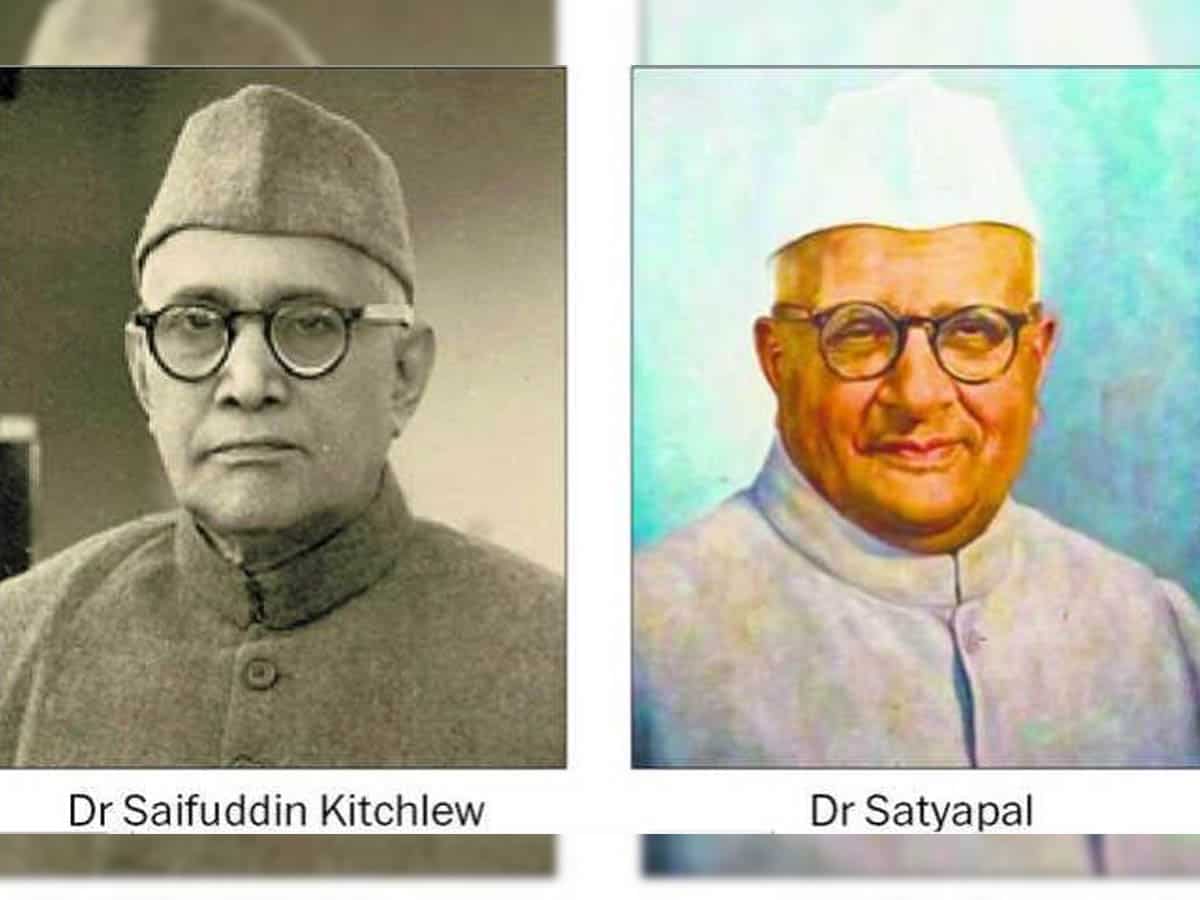
The Jallianwala Bagh massacre which was carried out on April 13, 1919, remains one of the blackest days of the Indian freedom struggle. It had wide ranging ramifications and the violent deed polarised opinions on both sides. It was a turning point in the struggle for freedom and many ordinary citizens who may have been initially ambivalent, got involved in the movement to throw out the oppressors from Indian soil.
As is well known, a large crowd had gathered at the bagh to protest against the arrest of two very well known and respected leaders of the freedom struggle. They were Dr. Saifuddin Kitchlew and Dr. Satyapal. The gathering which included women and children also, was peaceful and there was no stone pelting or any violence. Surprisingly the British army officer Brigadier R.E.H. Dyer reacted with extreme force and resorted to firing upon the unarmed and helpless civilians.
This incident shocked Rabindranath Tagore, the Nobel Laureate, to such an extent that he renounced his knighthood and many other patriotic Indians reacted strongly.
But today few people are aware of the stature of the two freedom fighters whose arrest led to the protest gathering. The duo, Dr. Saifuddin Kitchlew and Dr. Satyapal, were highly respected and beloved leaders with immense following. It was not for nothing that even women carrying their children in their arms, came out to protest against the arrest of these two charismatic persons.
When the British rulers passed the draconian Rowlatt Act, Dr. Saifuddin Kitchlew became the face of the protests. People cutting across different faiths and political ideologies, united under Dr. Kitchlew and Dr. Satyapal. The two of them stood firmly for the principles of freedom, non-violence and religious unity. They asked for a general strike asking people to carry out Satyagraha against the Rowlatt Act. It was this call that led to their arrest on April 10, 1919. Three days later Mahatma Gandhi too was put behind bars. The arrests led to the protest gathering at the bagh and the subsequent tragedy.
Dr. Saifuddin Kitchlew was born in Kashmir in 1888. His father Azizuddin owned a pashmina and saffron trading business. He studied first in the Islamia High School in Amritsar and later obtained a B.A degree from Cambridge University then a PhD from Germany. After his studies had ended, he returned to India and set up law practice in Amritsar. He joined the freedom struggle and became a leading light in the Congress party.
He started an Urdu daily named Tanzim and trained young men for national work and to promote unity between Hindus and Muslims. Throughout the 1930-1934 struggles, Kitchlew was repeatedly arrested, and spent 14 years behind bars in all. Kitchlew supported the idea of united India and was against the partition of the country. He felt that such a step would weaken Muslims.
He was the founder president of the All-India Peace Council and was also the Vice President of the World Peace Council. In his later political career Kitchlew worked for closer political and diplomatic relations with the USR. He was honoured with the Stalin Peace prize in 1952. He passed away in 1963.
His friend Dr. Satyapal was also a highly educated and respected man. He studied at Peterhouse College in Cambridge University and became a close friend of Jawaharlal Nehru. Later he practised as a physician in Amritsar. One day, the duo were whisked away from their homes and then from their city of Amritsar to neighbouring Himachal Pradesh quickly so that no immediate protest could halt the proceedings.
But when the news did get widely known, a call for a protest meeting was given and the people of Amritsar thronged to the Jallianwala Bagh venue in large numbers. Then followed one of the worst massacres ever perpetrated on the citizens of India by a foreign ruling power.
But the fact that people rose up instantly and spontaneously showed the love and respect that Dr. Kitchlew and Dr. Satyapal commanded. Sadly now we have no leaders of their stature. Instead the present day leaders are self serving people who have torn to shreds the ideals of the former flag bearers of unity.
None of the present day politicians have made sacrifices that the men of the past did to wrest the land from the British rulers. Instead there are many who are determined to create disunity and disharmony so that they can retain their posts. So it is but natural that they can never hope to get the appreciation and respect that were showered upon leaders of the freedom struggle. They deserve reverence even today.



